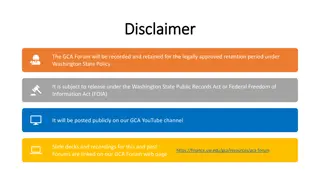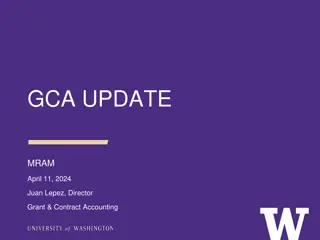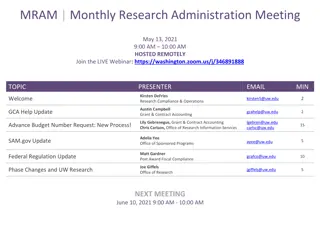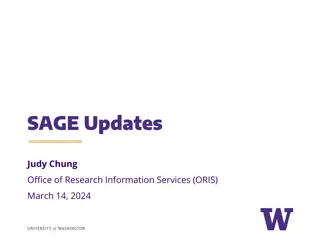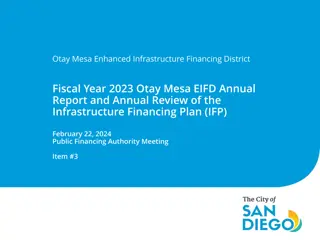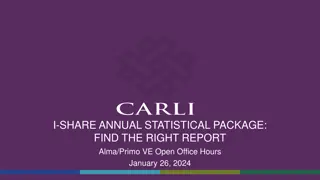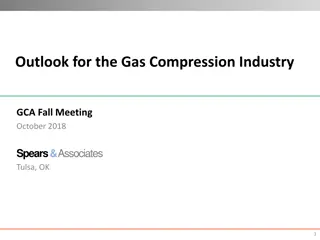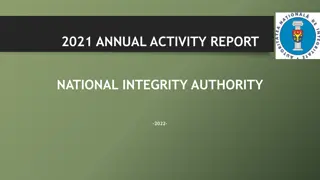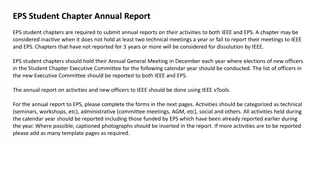
Grocery Supply Chain Challenges and Compliance Requirements
Delve into the complexities of the grocery supply chain, statutory reporting obligations, and the efforts of the GCA in promoting compliance and guiding suppliers. Explore key issues such as delivery performance and forecasting inaccuracies in this insightful report.
Download Presentation

Please find below an Image/Link to download the presentation.
The content on the website is provided AS IS for your information and personal use only. It may not be sold, licensed, or shared on other websites without obtaining consent from the author. If you encounter any issues during the download, it is possible that the publisher has removed the file from their server.
You are allowed to download the files provided on this website for personal or commercial use, subject to the condition that they are used lawfully. All files are the property of their respective owners.
The content on the website is provided AS IS for your information and personal use only. It may not be sold, licensed, or shared on other websites without obtaining consent from the author.
E N D
Presentation Transcript
1stAnnual Report March 2014
The groceries supply chain Very complex Market size; product range; volumes; geography History of practices to reduce the cost of supply Discounter success Simplicity Efficiency Code compliance
Statutory reporting requirements The GCA Act 2013 sets out the information we must report: Statutory report Disputes referred to arbitration under the Groceries Supply Order Two but not commenced Investigations carried out by the GCA None Cases in which the GCA has used enforcement measures None Recommendations made to the OFT for changes to the Code None But there is so much more we have achieved...
Providing advice and guidance Statutory duties Investigations and enforcement guidance issued Maximum financial penalty proposed Arbitration policy issued Other guidance How to raise an issue Escalation of disputes
Acting on supplier issues Raising issues with CCOs 3 stage process Consider and prioritise Clarify Formal guidance or investigation Case studies Charging for optimum shelf positioning Payments for failure to meet target service levels Planning for investigations
Key Issues raised on Code compliance Initial Top 5 Issues to consider
Delivery performance Why this is an issue Supplier recorded deliveries don t match retailer receipts Deductions are made from invoices Suppliers find it difficult to prove their case Code Part (5); No delay in payments Proposal Retailers asked to review depot performance
Forecasting and service levels Why this is an issue Inaccuracies in retailer forecasting Forecasts can vary significantly when orders are placed Suppliers claim to bear all the risk from poor forecasts Code Part (10) :No Compensation for forecasting errors Proposal Retailers asked to review forecasting practice and accuracy rates
Requests for lump sums Why this is an issue Requested without notice Sums can be significant, especially for smaller suppliers Joint business plans are not always agreed Code Part (3): Variation of supply agreements and terms of supply Proposal Retailers asked to review their practice
Packaging and design charges Why this is an issue Suppliers claim over-charging for photography and packaging Multiple design changes increase supplier costs Code Part (6) No obligation to contribute to marketing costs Part (11) No tying of third party goods and services for payment Proposal Retailers asked to consider limiting design changes Retailers asked to ensure practices are Code compliant
Forensic auditing Why this is an issue Statutory Limitation of 6 years Audits are complex and challenge systems and resources Significant sums involved; most negotiated not settled; some deducted without notice Code Part (5): No delay in payments Proposal Retailers asked to consider voluntarily reducing the time to settle accounts
Forensic auditing: Success Aldi Stores Ltd Asda Stores Ltd Co-operative Group Ltd Iceland Foods Ltd Wm Morrison Supermarkets plc Marks and Spencer plc Lidl GmbH Tesco plc These retailers have agreed voluntarily to: Limit the auditing of suppliers trading accounts from missed claims, by internal or external auditing processes, to no more than the current and previous two financial years on a reciprocal basis. Each retailer will set out how they will implement this commitment
Forward Look Responding to YouGov survey Validate responses to first survey Continued need to raise awareness Repeat next year Building confidence among suppliers to raise issues Further progress on key issues Assessment of other issues



